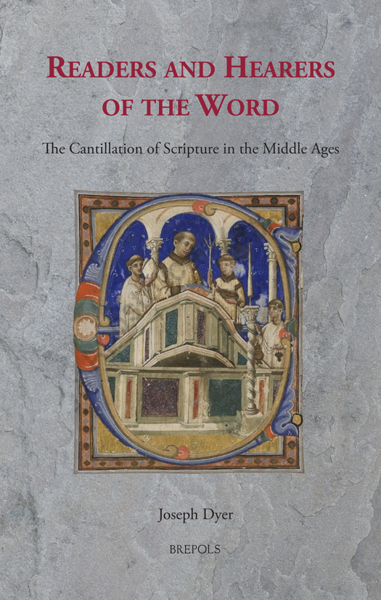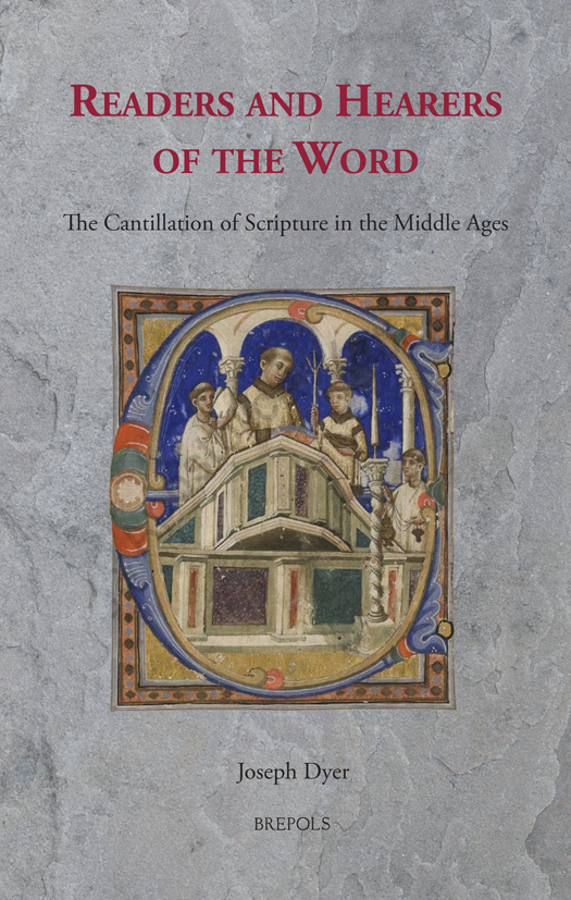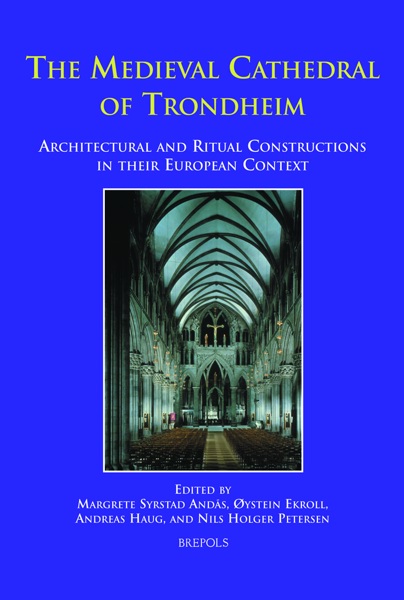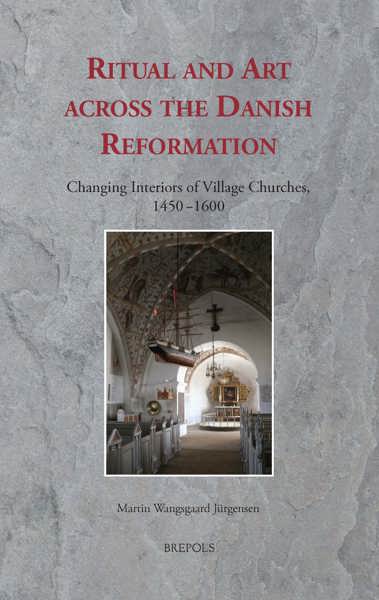
- Pages: 268 p.
- Size:156 x 234 mm
- Illustrations:12 b/w, 17 col., 14 musical examples
- Language(s):English
- Publication Year:2022
- € 85,00 EXCL. VAT RETAIL PRICE
- ISBN: 978-2-503-59287-9
- Hardback
- Available
- € 85,00 EXCL. VAT RETAIL PRICE
- ISBN: 978-2-503-59288-6
- E-book
- Available
A broad, multi-disciplinary treatment of the chanting (with elaborate ceremonial) of the Scriptures at Mass in the Middle Ages.
“Readers of this fascinating book will surely hope that it’s a study that Joseph Dyer himself is of a mind to take up.” (Robert Curry, in Parergon, 40/2, 2023, p. 224)
“This is a book that could have been written by very few scholars. The huge breadth of Dyer’s interests and scholarship – from linguistics to architecture to music theory to sacred vesture to liturgical sources and beyond – bears much fruit in this wide-ranging and detailed study. The text is readable, even for those who are not specialists in the manifold fields that intersect in this volume. It will be enjoyed by liturgical scholars and by all those who share an interest in the liturgy of the Latin Church, particularly its sacred music.” (David M. Friel, in Antiphon, 21/2, 2023, p. 267)
"While focused on historical modes of liturgical proclamation, the monograph also has relevance for broader discussions concerning the proclamation and comprehension of the scriptures in the contemporary liturgy. The book could be read with profit both by specialists in medieval liturgy and history as well as those with a broader interest in the interaction of scripture and liturgy." (Innocent Smith, in Ecclesia Orans, 2024/1, p. 188)
"This is a study of rare quality, particularly for a single author, and this review can hardly do it justice. The significance and range of material Dyer takes in is impressive, and the reader gains a sense of the whole environment involved in sacred reading and how much work and imagination is necessary to recover this context. The breadth of this book also suggests the diverse competencies needed to discuss liturgy to the fullest extent." (Zachary Guiliano, in Church History, 03/2024, p. 163)
Joseph Dyer has written many articles, book chapters and encyclopedia entries on chant and liturgy in Late Antiquity and the Middle Ages (especially Rome), psalmody, monasticism, performance practice, medieval music theory, and music in the intellectual life of the Middle Ages. He recently published The Scientia artis musice of Hélie Salomon: Teaching Music in the Late Thirteenth Century (2018), an edition and translation with commentary of a medieval music theory treatise.
Readers and Hearers is a broad, multi-disciplinary treatment of the chanting of the Scriptures (epistle and gospel) at Mass in the Middle Ages. This form of chanting followed a procedure that continued to be used in the western Latin liturgy until the mid-twentieth century and in the traditional Latin Mass today. The readings were not simply spoken, but chanted to formulae that stood halfway between heightened speech and song (cantillation). Specific clerics (lectors, subdeacons, deacons), distinctively vested, were commissioned to chant the Scriptures, employing a ritual that came to be surrounded by an elaborate ceremonial. For the gospel this involved acolytes, processional movement, and the employment of ecclesiastical ‘furniture’ (pulpit, ambo, and choir screen).
While the laity attending Mass could generally see all of the ritual actions, what did they understand of the Latin text they were hearing? In areas where Latin was spoken in Antiquity the ability to comprehend Latin passively as it morphed into the Romance vernaculars survived longer than generally assumed. Naturally, in Germanic lands, christianized in the early Middle Ages, that capability never existed. Several manuals were created to guide layfolk to engage in devotions suitable to the various parts of the Mass. How all of these elements — ceremony and devotional aids — united ‘readers’ with ‘hearers’ at Mass is the theme of the present volume, which also covers Martin Luther’s guidelines for the chanting of the Scriptures in German
List of Illustrations, Abbreviations
Introduction
Chapter 1. ‘Lay Folkes’ and the Mass
Chapter 2. Readers of the Word: Lectors, Subdeacons, Deacons
Chapter 3. Reading, Writing, and Punctuating the Word
Chapter 4. Cantillating the Epistle and the Gospel
Chapter 5. Hearers of the Word
Chapter 6. Direction of Prayer, Siting of Churches, and Chanting of the Gospel
Chapter 7. Places for the Readings
Chapter 8. Vestments
Chapter 9. Sacralizing the Word
Appendix 1. Isidore of Seville, De ecclesiasticis officiis 2. 11
Appendix 2. Bilingual (Latin/Greek) Readings
Appendix 3. Amerus, Practica artis musice, cap. 26
Appendix 4. Ceremonial of Cardinal Giacopo Stefaneschi, cap. 28
Bibliography
Index




